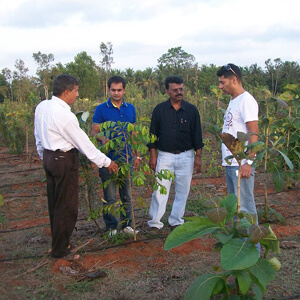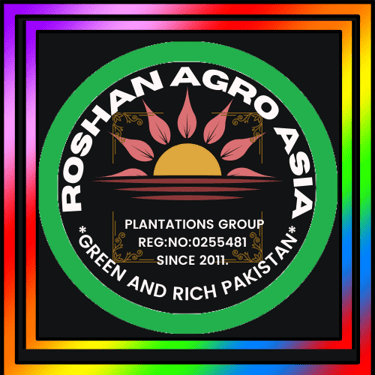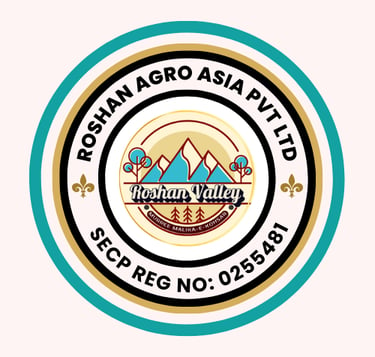Disclaimer: The official launch of Roshan Agro Asia is contingent upon approval from relevant government authorities. This website is provided for informational purposes only and does not constitute marketing or an offer to sell.
Our services
From consulting and strategy development to implementation and support, our comprehensive services can help your business thrive.
Drone Siva and Satellite Services
It’s very difficult for you to check out any sector of the economy without noticing the use of drones. In the agricultural sector, drones are used for a variety of tasks, which include spraying fertilizers, aerial surveillance, crop monitoring, land inspection, mapping, inspecting for damaged or rotting crops, and many more. Drones of various types are being examined to see which has the greatest potential in gardening, agriculture, and farming. Due to their multi-rotors, drones like quadcopters are the best choice for crop fertilization. Fixed-wing drones are ideal for crop fertilization, but their huge structure, which necessitates a big landing area, gets in the way.
Some reports* revealed that they expect the drone industry in the agricultural sector to grow from USD1.2 billion in 2019 to a whopping USD4.8 billion in 2024. All data obtained by the drones in farmlands is mostly used to make better agronomic** decisions, which makes it part of the “precision agriculture” sector.
The use of drones has become a crucial part of large-scale precision farming operations in several areas. The data gathered from what the drones record helps farmers make better plans for planting and treatments to yield the best possible harvest. According to some reports, making use of precision farming systems has the tendency of increasing yields by up to 5%***, and that’s a significant increase in a market that has slim profit margins.
SPRAYING OF FERTILIZER
The ability of drones to move around quickly to their intended destinations is one of the top uses of drones in agriculture. Drones having this capability can spray insecticides and fertilizers on crops to nourish them and give them the nutrients they require. Crops can be healthy and thrive with such supplements. Drone controllers have complete control over the drone spraying nutrients to keep worms, pests, and insects at bay and extend crop life.
MONITORING THE SOIL HEALTH
Drones’ powerful capabilities aid in the labor-intensive process of analyzing the health of the soil. UAVs gather and analyze data from monitoring systems that may be used to monitor, modify, and maintain the nature and health of the soil. Drone tech can also help the soil get the nutrients it needs to increase its health. Drones accomplish this task of monitoring the health of the soil through their data processing operations and 3D mapping.
SEEDING PROCESS
Agriculture is a labor-intensive and time-consuming industry by definition, as it necessitates a high level of ability to carry out its activities. Seeding, in particular, necessitates human work because it’s a process that consumes time. Drone technology is used to sow the seeds of several varieties of crops to make this laborious task easier. Lasers, sensors, tanks, and other features built into drones enable them to plant seeds swiftly and cleanly.
EXAMINING THE FLAWS
Another fantastic advantage of using drones to fertilize crops is their ability to assess, diagnose, and survey these crops for any inadequacies. Their cameras of high resolution and sensors, which are also equipped with lasers, aid in the speedy completion of various tasks.
Unmanned Aerial Vehicles are also used to map these flaws in real-time, and the information gathered and processed can be utilized to make additional crop decisions.
DRONES FOR FERTILIZING CROPS
Drones and their uses have helped to simplify the time-consuming process of agricultural fertilization in general. Their entrepreneurial and powerful temperament greatly aids farmers in a variety of duties and operations.
FERTILIZER SPRAYING
Fertilizer spraying using drones is an innovative approach to crop management that can improve efficiency and reduce costs for farmers. However, farmers must be aware of the regulatory, technical, and environmental considerations associated with this approach and plan accordingly. With proper planning and execution, fertilizer spraying using drones can be a valuable tool for modern agriculture.
WHAT ARE SOME OTHER AGRICULTURAL APPLICATIONS FOR DRONES?
Drones, for starters, are great for monitoring and sensing techniques because they can quickly cover territory to check crop development and soil health. Drones are mostly used for this purpose since their sensors can detect the absorbance of a specific wavelength, resulting in a color contrast image that visibly reflects possibly problematic locations.
Ranchers have also employed drones to track livestock on ranches and check for any damaged fences, demonstrating that this monitoring capability not only provides for rapid processing of spatiotemporal information. Rangers have also employed night cameras and thermal imagers to locate any animals disturbing or attacking herds to better monitor cattle.The second major use of drones in agriculture is to keep crops healthy by dispersing water, fertilizer, and pesticides. Drones coupled with spectroscopic and thermography technology can detect dry areas and address problems that traditional watering equipment may have missed. Drones, on the other hand, can detect equipment leaks and irrigation problems.
Skill Development
Skill development in agriculture is critical for the growth and development of India's agricultural sector. With a vast majority of the population still engaged in farming and related activities, there is a need to enhance their skills and knowledge to improve productivity, efficiency, and sustainability.
Following are the key initiatives for skill development in agriculture
AGRICULTURAL UNIVERSITIES AND COLLEGES
Agricultural universities and colleges offer undergraduate, postgraduate, and doctoral degree programs in various agricultural fields such as agronomy, horticulture, animal husbandry, dairy science, and fisheries. These programs provide theoretical and practical training to students and prepare them for careers in the agricultural sector.
NARC AGI EXT
NARC are agricultural extension centers established by the GOVT Council of Agricultural Research (ICAR) to provide training and support to farmers. NARC offer various training programs on crop production, animal husbandry, fisheries, and post-harvest management, among others.
VOCATIONAL TRAINING PROGRAMS
Vocational training programs are short-term courses designed to provide practical training in specific skills. In agriculture, vocational training programs can cover various topics such as organic farming, horticulture, seed production, farm machinery operation, and marketing of agricultural products.
SKILL DEVELOPMENT SCHEMES
The Government of pAKISTAN has launched various skill development schemes to enhance the skills of youth in agriculture and allied sectors. These schemes include NARC,PARC AND AYUB AGRI RESEARCH CENTER,among others.
PRIVATE TRAINING INSTITUTES
Private training institutes also offer various courses and programs in agriculture and allied sectors. These institutes provide practical training and hands-on experience to students and professionals.
Some of the key government schemes for agriculture in India are as follows:
BARANI UNIVERSITY.
FARMERS TRAINING is a scheme launched by the Government to provide skill development training to youth across various sectors, including agriculture and allied activities. The scheme aims to enhance the employability of youth and provide them with opportunities for self-employment.
TANDO JAM AGRI UNIVERSITY
FARMERS TRAINING is a scheme launched by the Ministry of Rural Development to provide skill development training to rural youth. The scheme aims to enhance the employability of rural youth and provide them with livelihood opportunities in agriculture and other sectors.
AGRICULTURE SKILL COUNCIL
The Agriculture Skill Council is a sector skill council set up by the Government of India to address the skill development needs of the agriculture and allied sectors. The council aims to promote skill development, certification, and accreditation in agriculture and allied sectors.
NATIONAL INSTITUTE OF AGRICULTURAL EXTENSION MANAGEMENT
The National Institute of Agricultural Extension Management (MANAGE) is a national-level institute established by the Ministry of Agriculture to provide training and capacity building to agricultural extension professionals. The institute offers various training programs and courses on agricultural extension, management, and entrepreneurship.
NATIONAL SKILL DEVELOPMENT CORPORATION
The National Skill Development Corporation (NSDC) is a public-private partnership set up by the Government of India to promote skill development across various sectors, including agriculture. The NSDC works with various training partners to provide skill development training and certification to youth across the country.
These are some of the key initiatives taken by the Indian government for skill development in agriculture. These initiatives aim to enhance the employability of youth and promote sustainable agriculture practices in the country. to life.
ADVISORY ON SMART AGRICULTURE
ADVISORY ON SMART AGRICULTURE
Smart agriculture is an approach that utilizes technology to enhance agricultural practices and improve the efficiency and productivity of farming.
Following are some advisory tips on smart agriculture:
ADOPT PRECISION FARMING TECHNIQUES
Precision farming involves using data analytics and precision technology to optimize crop yields, reduce waste, and improve farm efficiency. Farmers can use precision farming techniques like GPS mapping, soil sensors, and yield monitoring to gain insights into their crop health and make informed decisions about fertilizers, irrigation, and pest management.
PROMOTE SUSTAINABLE AGRICULTURE PRACTICES
Sustainable agriculture practices focus on preserving natural resources, reducing waste, and protecting the environment. Farmers can adopt practices like crop rotation, integrated pest management, conservation tillage, and organic farming to promote sustainability and reduce their environmental impact.
INVEST IN SMART FARM EQUIPMENT
Smart farm equipment like drones, autonomous tractors, and precision irrigation systems can improve farm efficiency, reduce labor costs, and enhance yields. Farmers can invest in smart farm equipment that fits their specific needs and can be integrated with their existing systems.
USE DIGITAL TOOLS FOR FARM MANAGEMENT
Digital tools like farm management software, mobile apps, and cloud-based data storage can help farmers streamline their operations, manage their resources more efficiently, and make informed decisions based on real-time data.
BUILD PARTNERSHIPS WITH TECHNOLOGY PROVIDERS
Farmers can partner with technology providers like ag-tech startups, research institutions, and government agencies to access the latest technologies and gain insights into new trends in smart agriculture.
STAY INFORMED ABOUT GOVERNMENT POLICIES AND INITIATIVES
Governments at various levels have launched policies and initiatives to promote smart agriculture and support farmers. It is important for farmers to stay informed about these policies and initiatives and leverage them to enhance their farming practices and business operations.
These are some of the key advisory tips for smart agriculture. By adopting smart agricultural practices, farmers can increase their productivity, reduce costs, and contribute to a more sustainable and efficient food system.Our architecture services prioritize function and form to create spaces that stand the test of time.

















